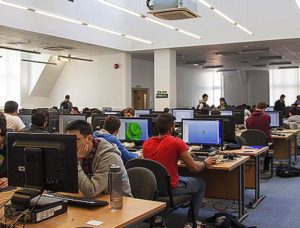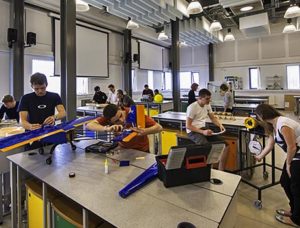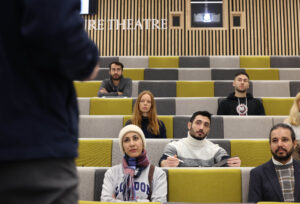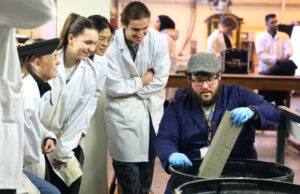Course overview
The Architectural Engineering degree is a multidisciplinary degree, encompassing civil engineering and architecture jointly delivered by the School of Engineering and the School of Architecture.
Architectural engineers are responsible for the design of different systems within a building or an aspect of critical infrastructure with a particular focus on key areas.
As a student, you will be provided with a multidisciplinary skill set to design building structures, bridges and critical infrastructure incorporating both the solid technical grounding that a typical civil/structural engineering degree provides; alongside a robust and wider appreciation of the architectural, societal, economic and environmental aspects associated to a particular design solution.
Accreditation
This degree is accredited by the Joint Board of Moderators (JBM) comprising the Institution of Civil Engineers, Institution of Structural Engineers, Institute of Highway Engineers, the Chartered Institution of Highways and Transportation and the Permanent Way Institution on behalf of the Engineering Council for the purposes of fully meeting the academic requirement for registration as an Incorporated Engineer (IEng) and partially meeting the academic requirement for registration as a Chartered Engineer (CEng). Candidates must hold a masters or doctorate accredited as further learning for CEng to hold accredited qualifications for CEng registration.
See www.jbm.org.uk for further information and details of Further Learning programmes for CEng.









